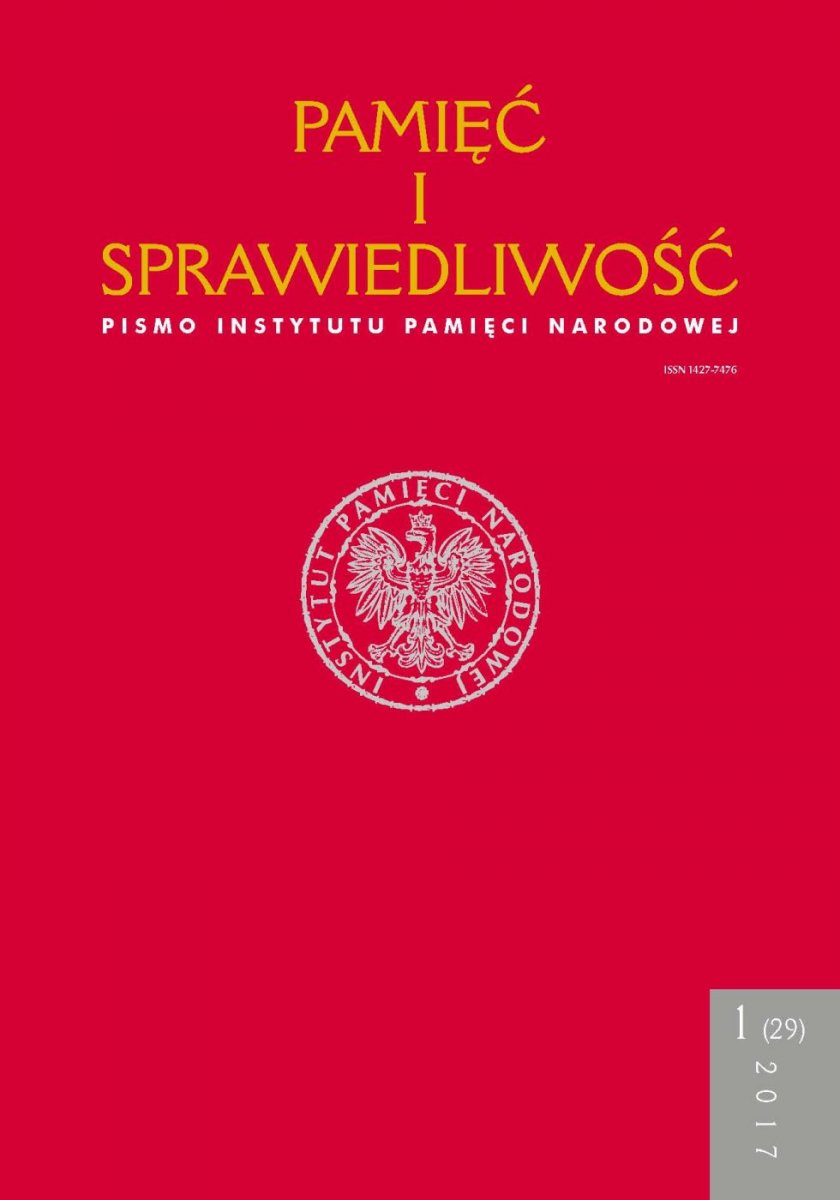Działalność I sekretarza Komitetu Warszawskiego PZPR Stefana Staszewskiego w 1956 roku
Pamięć i Sprawiedliwość, Tom 29 Nr 1 (2017), strony: 485-505
Data publikacji: 2017-06-30
Abstrakt
Słowa kluczowe
Stefan Staszewski • Władysław Gomułka • VIII Plenum partyjne • październik 1956 • Komitet Warszawski PZPR • FSO • frakcje partyjne • puławianie Stefan Staszewski • Władysław Gomułka • Eighth Plenary Session of the Party • October 1956 • PUWP Warsaw Committee • FSO • party factions • Puławians
Bibliografia
Eisler Jerzy, Komitet Warszawski PZPR w „polskich miesiącach” {w} Warszawa miasto w opresji, pod red. Kazimierz Krajewski, Magdalena Pietrzak – Merta, IPN Warszawa 2010.
Friszke Andrzej, Anatomia buntu. Kuroń, Modzelewski i komandosi, ZNAK, Kraków 2010.
Jankowiak Stanisław, Wielkopolska w okresie stalinizmu (1948-1956), Poznań, Wydawnictwo Poznańskie, 1995.
Juzepczuk Marek, Mieszkańcy Warszawy wobec przemian Października 1956 roku w świetle dzienników i pamiętników, {w} Rocznik Mazowiecki, t.25, Mazowieckie Towarzystwo Naukowe, Warszawa 2013.
Juzepczuk Marek, Działania Komitetu Warszawskiego PZPR w październiku 1956 r. w ocenie Władysława Gomułki {w} Vir Bonus. Księga jubileuszowa dedykowana doktorowi Władysławowi Horstowi, Archiwum Akt Nowych, Warszawa 2015.
Juzepczuk Marek, Stefan Staszewski – kierownik Wydziału Prasy i Wydawnictw KC PZPR w latach 1948-1954 {w} Elity komunistyczne w Polsce, UMCS-IPN, Warszawa-Lublin 2015.
Kondek Adam Stanisław, Papierowa rewolucja. Oficjalny obieg książek w latach 1948-1955, Biblioteka Narodowa, Warszawa 1999.
Skrzypek Andrzej, Mechanizmy uzależnienia, stosunki polsko-radzieckie 1944-1957, Pułtusk WSH im. A. Gieysztora, 2002.
Sobór-Świderska Anna, Jakub Berman. Biografia Komunisty, IPN, Warszawa 2009
Szumiło Mirosław, Roman Zambrowski 1909-1977. Studium z dziejów elity komunistycznej w Polsce, IPN, warszawa 2014.
 Język Polski
Język Polski
 English
English
 Deutsch
Deutsch
 Français (France)
Français (France)
 Italiano
Italiano
 Русский
Русский


 PDF
PDF
